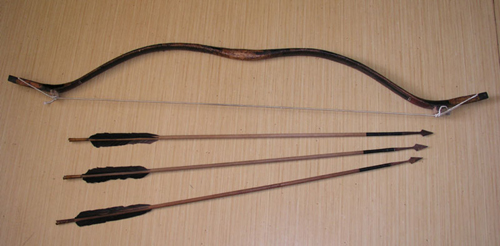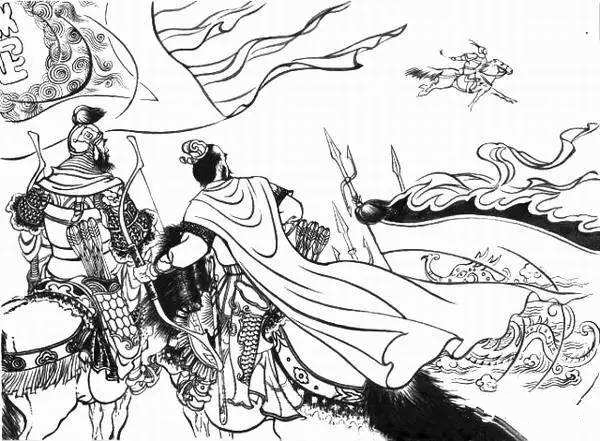The image is fromwww.bjskpj.cn
When King Chu lost his treasured bow when he was hunting, his subordinates searched everywhere but failed. He said to them: “You don’t have to look anymore. I have lost a bow, but a citizen of Chu will eventually find it, which means the country has not lost any bows. There is nothing to be pitied.”
Confucius heard of this and commented, “When someone loses their bow, someone else may find it. Is it only restricted to the Chu people?”

When Lao Tzu heard this, he said, “If you lose your bow, anyone can gain it. Why should a human being be the only one? If a man drops his bow, an ape may pick it up. The ape plays with it and has a good time with it. Even if the ape does not find it, heaven and earth will have it. The bow is in the arms of heaven and earth and returns to nature. It feels warm and safe as if it comes back home. What’s the pity of losing a bow? Why must there be a person to receive it?
Lao Tzu expressed the idea of the unity of man and nature. All things are in heaven and earth, without gain or loss, without favor or disgrace.
失弓得弓
楚王打猎时丢失了一张宝弓,遍寻不到,就洒脱地对随从说到:“不必再寻找了。楚国的人丢失了一张弓,楚国的人最终会得到它,也就等于楚国并没有丢失弓箭,有什么可惜的?”孔子听到后,就说:“人失弓,人得之。何必楚也?”人丢失了弓箭,最终人还会得到它,得到它的又何必一定是楚国人呢?老子听到后,也说:“失弓,得之。何必人也?”丢失了弓箭,人得不到,猿猴会得到。猿猴得到了弓箭,玩耍一番,同样会其乐无穷。即使猿猴得不到,天地也会得到,弓箭在天地的怀抱中,回归了自然,如同回家了一样温暖安全,哪还有丢失了弓箭的遗憾?得到它的又何必一定是人呢?
老子表述的是天人合一的思想,万物皆在天地中,无得无失,无宠无辱。
http://blog.sina.com.cn/s/blog_6a80502b0100pxkj.html




